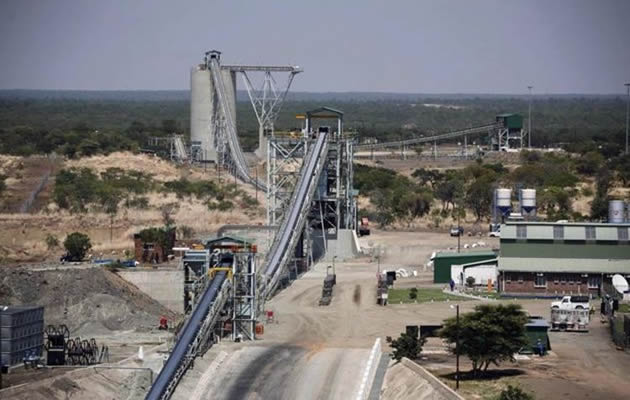By John Kachembere
Zimbabwe’s cash-strapped government has moved a step closer to compulsorily acquire 28 000 hectares of mining land in Kadoma held by Zimplats, in a development that is likely to put the country on a collision course with foreign investors.

President Robert Mugabe — who of late has been softening his indigenisation stance — on Friday, gazetted General Notice 407 of 2016 showing his aim to forcibly acquire the mining land.
“Notice is hereby given, in terms of section 398 (1) of the Mines and Minerals Act (Chapter 21:05), that the president intends to acquire compulsorily part of the mining location held by Zimbabwe Platinum Mines . . . under special mining lease number 1 of 1994 as it fully appears below, for the utilisation of such mining location for the benefit of the public,” he said.
This was after the nonagenarian leader had in July this year sued Zimplats for objecting to the government’s intended compulsory acquisition of its land.
Mugabe filed an application at the Administrative Court seeking confirmation of the compulsory acquisition of the underutilised mining land.
The land, which is held by Zimplats under a special mining lease, has been lying idle for years and government intends to acquire and reallocate it to prospective miners who are keen on extracting platinum for the country’s economic growth.
“The president, in his official capacity, seeks to acquire the land” in terms of the Land Acquisition Act as read with the relevant section of the Mines and Minerals Act, part of the court application said.
“The land to be acquired will allow for the immediate entry of new players into the platinum sector.”
The civil division of the attorney general’s office filed the application on behalf of the president.
Zimplats, however, filed opposing papers urging the courts to throw it away on a technicality.
In its submission, the Australia Stock Exchange-listed company contends that, under the 2006 release of ground agreement, “it was accepted by both the government and Zimplats that the ground that Zimplats remained with was required by Zimplats to achieve its expansion objectives.”
The agreement also stipulated that the Zimbabwe government would pay $153 million for those resources. It is yet to do so.
Government has completely ignored this, ominously warning Zimplats about the impending expiry of the miner’s 25-year special mining lease granted to its successor BHP Minerals Zimbabwe in 1994.
“Whether the government of Zimbabwe will extend the Special Mining Lease in 2019 remains to be seen,” Mugabe deposed in his affidavit.
Market watchers said it is this treatment of a firm that has spent nearly $4,6 billion — $533 million of this in taxes and royalties — in the country since 2002 that will spook many investors.
Analysts have cited Zimbabwe’s uncertain investment environment, plagued by policy inconsistency, disregard for agreements, a controversial local ownership law and the oft-violent seizure of white-owned farms since 2000, as the reason why the country continues to lag behind its regional peers in terms of drawing foreign direct investment.
In 2015, FDI declined 23 percent to $421 million at a time when Mozambique and Zambia registered $3,7 billion and $1,6 billion, respectively.
In the latest gazette, Mugabe called upon any one person having an interest in the land to contest the acquisition of land should lodge a written objection with the acquiring authority within 30 days from the date of publication of the notice.
In addition, Mugabe also urged Zimplats to apply for compensation of the land to be acquired by government.
A notice to acquire the land was published in the Government Gazette of April 26, 2013 and Zimplats was served with the notice.
The mining company objected to the compulsory acquisition on May 7 the same year, in terms of the Land Acquisition Act.
Mugabe is reported to have resorted to the courts after the Mines minister engaged Zimplats for a roundtable meeting but failed to reach an agreement.
Zimplats — majority-owned by South Africa-based Impala Platinum (Implats) — holds a special mining lease over two areas in the country totalling 48 535 hectares in extent.
Back in 2013, both Implats and Zimplats said they were taking legal advice to protect their rights. Daily News






